Béla Balázs
Nacimiento : 1884-08-04, Szeged, Austria-Hungary [now Hungary]
Muerte : 1949-05-17

Self (archive footage)
Countless people around the world know the pictures from Leni Riefenstahl's films, even if they have not seen them in their entirety. The work of the German director has burned itself into the collective memory. Even decades after the end of the Nazi era, she showed no remorse and presented herself as an apolitical, naive follower of the Nazi criminal regime. Her artistic service for the cinema was always recognized. But book author Nina Gladitz shows after decades of research that Hitler's favorite filmmaker was not only a follower, but also a perpetrator during the Third Reich, who instrumentalized other filmmakers such as the brilliant cinematographer Willy Zielke in order to gain fame for herself.

Writer
Running through Bartók’s disenchanted tale, whose haunting music was initially condemned as unplayable, and the expression of despair in Poulenc’s monologue, the director Krzysztof Warlikowski perceives a shared dramatic thread, a shared feminine consciousness and a shared sense of imprisonment and suffocation: for the woman who penetrates the confines of Bluebeard’s castle and Elle, the woman who clings to a telephone conversation with a man as the only thing worth living for, are condemned to share the same fate. And this man she speaks to, does he really exist? Unless the director has interpreted Cocteau’s words to the letter and the telephone has become a “terrifying weapon that leaves no trace, makes no noise”…
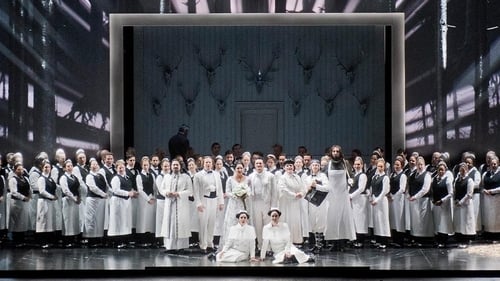
Writer
Valery Gergiev conducts Mariusz Trelinski’s thrilling new production of these rarely heard one-act operas. Anna Netrebko stars as the blind princess of the title in Tchaikovsky’s lyrical work, opposite Piotr Beczala as Vaudémont, the man who wins her love—and wakes her desire to be able to see. Nadja Michael and Mikhail Petrenko are Judith and Bluebeard in Bartók’s gripping psychological thriller about a woman discovering her new husband’s murderous past.
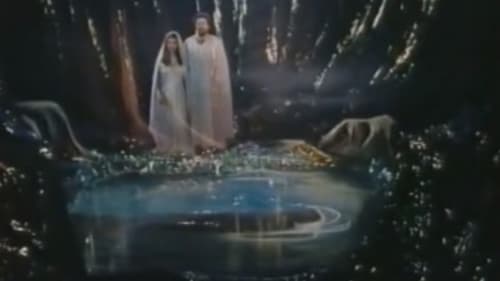
Opera
Judith arrives at Bluebeard's dark castle hoping her love can convince him to reveal the secrets behind the locked interior doors.
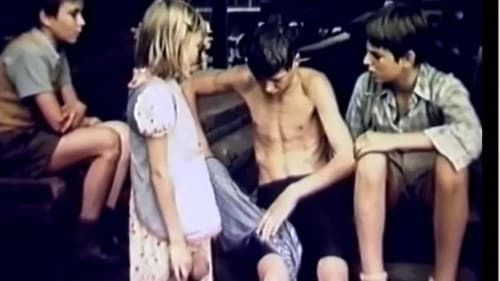
Writer
1934, Germany. The ten-year-old Peter lives in a small town with his parents. His father, an underground Communist, is arrested. In the summer vacation the kids from the neighbourhood fight in two teams, which prevail in turns. One team, led by Ewald, imitates the Nazis, while the other, headed by Fritz, follows his Communist father's example.

Story
Based on the Bela Bartok opera, Bluebeard woos his women and then swiftly disposes of them.

Writer
1944. A band of runaways and orphans of the war scour the countryside in search of food and shelter. They invade and then taken in by a musician and former concert pianist who’s hiding out in a ruined castle. After the initial altercation between them the gang accepts his guidance and he wins their respect by protecting them from the elements.
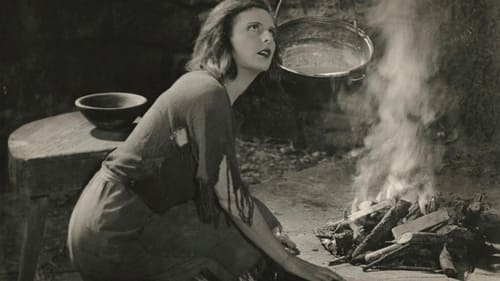
Writer
Junta es una chica que vive sola en un monte en cuya cumbre brilla una luz azul por las noches. Los habitantes del pueblo, temerosos de esa luz, rechazan a Junta y la tachan de bruja. Sólo un visitante no hace caso de los supersticiosos y decide acercarse a la joven; los dos se sienten mutuamente atraídos.

Director
Junta es una chica que vive sola en un monte en cuya cumbre brilla una luz azul por las noches. Los habitantes del pueblo, temerosos de esa luz, rechazan a Junta y la tachan de bruja. Sólo un visitante no hace caso de los supersticiosos y decide acercarse a la joven; los dos se sienten mutuamente atraídos.

Writer
The French-language version of the The Threepenny Opera with a different cast from the German version.

Screenplay
Ellen Hobart is a gold-digging manicurist who sights her sights on David Stone, a wealthy young man. After they marry, Hobart is persuaded to accept $50,000 to give her husband up. She willingly goes along with this arrangement, only to realize she's genuinely in love with the boy when he falls dangerously ill. German-language version of the American pre-code film The Devil's Holiday.
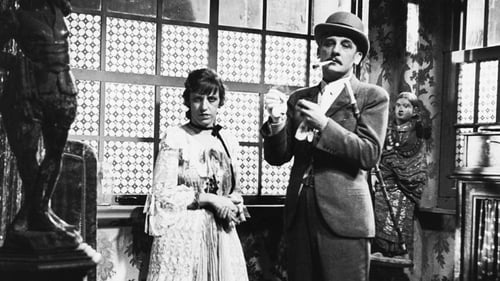
Writer
In London at the turn of the century, underworld kingpin Mack the Knife marries Polly Peachum without the knowledge of her father, the equally enterprising 'king of the beggars'.

Writer
Adaptación de un novela de Stefan Zweig

The Storming of La Sarraz
A farcical war between the forces of Commercial Cinema and Independent Cinema.

Writer
A Spanish nobleman raises his only daughter as a boy, similarly to Greta Garbo in Queen Christina (1933). In adulthood, Juana's upbringing causes complications in her love life. Possibly an early example of genderqueer representation.

Writer

Screenplay

Screenplay

Writer

Writer

Novel
When Professor Horski learns that his wife has published a volume of novellas under his name entitled "Wife" he feels compromised and is angered at her. But as he reads them, he finds that they are great. Also, he reads in them a warning to himself: one should not neglect one's wife for the sake of academic work. The film is considered to be lost.

Short Story

extra
Superproducción de la época que adaptaba la historia de Sodoma y Gomorra, dividida en dos partes. 1ª parte (El pecado): Mary Conway, incitada por su ambiciosa madre Agathe, decide casarse con el banquero Jackson Harber -un hombre bastante maduro y con pocos escrúpulos-, pese a que está enamorada del escultor Harry Lighton, quien se desvive por ella. Lighton, despechado, intenta suicidarse y Mary comienza a dar rienda suelta a un incontrolable afán seductor que involucra al hijo del banquero e incluso al sacerdote-tutor que le acompaña. 2ª parte (El castigo): Mary sueña que es Lía, la esposa de Lot y revive, como una mujer pecaminosa, el episodio bíblico de Sodoma y Gomorra. Después se verá a sí misma como la perversa reina de Siria. Esto será muy significativo para su vida.

Writer














